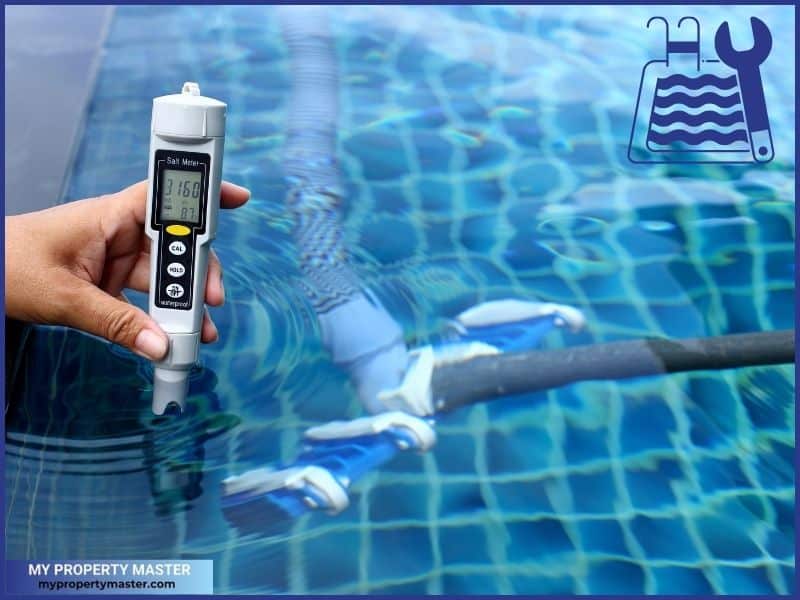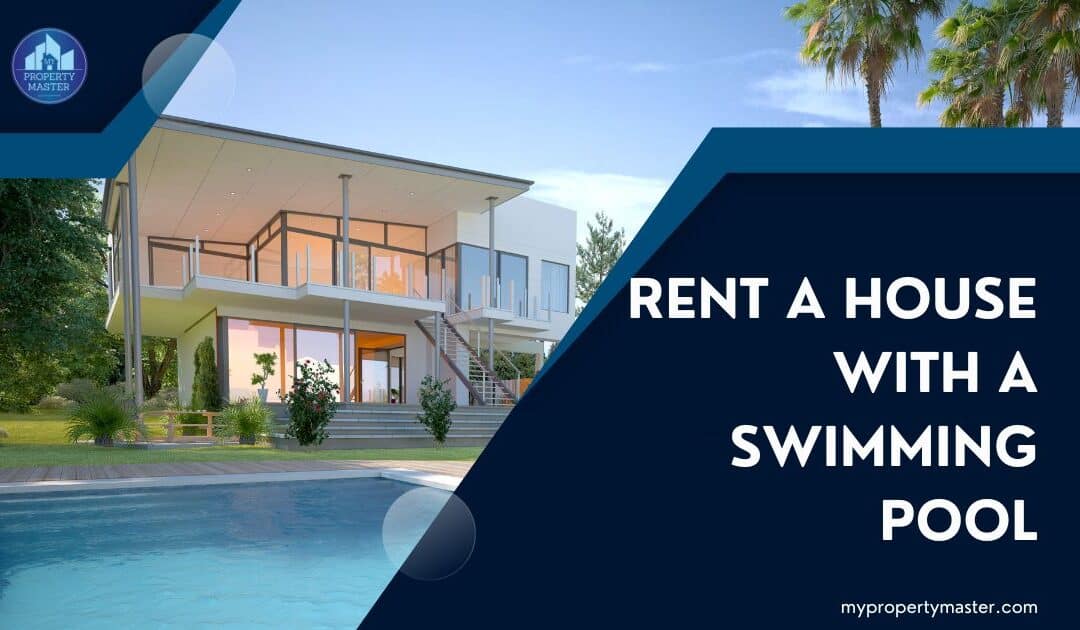Renting out your house with a swimming pool can be very easy because there is a huge demand, and most tenants love it. Also, the rental price will be higher than that of other properties. Undoubtedly, it’s a gorgeous and elegant addition to your rental property.
But this is not the end. As a homeowner, you have some extra liabilities for the extra benefit you added to your property.
In this article, I will explain your responsibilities and critical considerations. This will ensure a positive experience with tenants and save you from any vulnerabilities, especially financial ones. Also, you can be on the safe side regarding laws, rules & regulations.
Shall we proceed? Let’s get started.
Rent a house with a swimming pool: Things you must consider as a landlord
Once you add a swimming pool to your house, it will attract many people and tenants. At the same time, this will also invite some unexpected incidents.
As a landlord, you should keep yourself safe from legal problems and make the environment for your tenants so they can stay peaceful. This should be a win-win for both of you.
Here’s a comprehensive guide for landlords on critical aspects to consider when renting a house with a swimming pool.
Legal Compliance and Safety Regulations

Before renting out a property with a swimming pool, it’s crucial to understand and comply with local safety regulations for pool installations.
You can find the local laws and rules based on your property location. Here are some of the states’ official websites:
| State | Website |
|---|---|
| Rhode Island | https://www.ri.gov/ |
| Alabama | https://www.alabama.gov/ |
| Utah | https://www.utah.gov/index.html |
| Washington | https://wa.gov/ |
| Pennsylvania | https://www.pa.gov/ |
| Texas | https://www.texas.gov/ |
| Oklahoma | https://oklahoma.gov/ |
| California | https://www.ca.gov/ |
| Alaska | https://www.alaska.gov/ |
| Arizona | https://az.gov/ |
This may include having proper fencing, safety covers, and signage. Compliance not only ensures the safety of tenants but also protects landlords from potential legal liabilities.
Liability Insurance
A person, especially kids who don’t know how to swim, has a chance of causing issues. So consider the potential risk.
Also, you should review and update the insurance policies as a landlord. Liability insurance is essential to provide coverage in case of accidents or injuries.
Adequate insurance helps protect landlords from financial liabilities and legal claims.
Regular Maintenance

Maintaining the pool in good condition is crucial for tenant satisfaction and extending the life of the pool.
Landlords should establish a routine maintenance schedule, including regular cleaning, chemical balancing, and equipment checks.
Consider hiring professional pool maintenance services to ensure proper care and timely repairs.
Educating Tenants
Provide tenants with detailed information and guidelines regarding pool usage. This should include safety rules, maintenance expectations, and emergency procedures.
Also, keep adequate life buoys in the pool and inspire them to use those, especially those who don’t know how to swim.

Educating tenants on proper pool etiquette and care can prevent issues and promote a positive living experience.
Pool Inspection and Upkeep
Before renting out a property, conduct a thorough inspection of the pool and its equipment. Ensure that the pool structure, plumbing, and filtration systems work well. Address any necessary repairs or upgrades before tenants move in to avoid disruptions and dissatisfaction.
Additional Amenities
Consider whether additional amenities, such as poolside furniture, outdoor lighting, or landscaping, can enhance the overall appeal of the pool area.
Well-maintained surroundings contribute to the property’s aesthetic appeal and may attract tenants to pay a premium for a well-designed outdoor space.
Utilities and Maintenance Costs
Factor in the additional costs associated with pool maintenance and utilities. Communicate to tenants how these costs will be managed, whether included in the rent or billed separately.
Understanding and transparently communicating these details can prevent misunderstandings and disputes.
Liability Waivers
Consider having tenants sign liability waivers acknowledging the risks associated with pool usage. In comparison, this may not eliminate all potential legal issues. However, it can supplement an additional layer of protection for landlords.
Emergency Preparedness
Establish emergency procedures and provide tenants with clear instructions on what to do in case of pool-related emergencies.
This may include posting emergency contact numbers, first aid information, and the location of safety equipment.
Local Climate Considerations
Consider the local climate when planning pool maintenance schedules and informing tenants about proper care.
Seasonal changes may require adjustments in pool treatment and equipment operation.
Is a rental pool a good investment?

Investing in a rental property with a pool can be a good decision, but it comes with advantages and challenges. Here are some considerations to help you determine if a rental property with a pool is a good investment for you:
Advantages
- Increased Rental Value: Properties with pools often have higher rental values.
- Market Differentiation: A pool can set your property apart in a competitive rental market, attracting tenants looking for unique and desirable features.
- Tenant Attraction: Many families with children are explicitly looking for properties with pools.
- Enhanced Aesthetics: A well-maintained pool and outdoor space can change the overall look & feel of your house/property.
Challenges
- Higher Maintenance Costs: Pools require regular maintenance, which can add to the overall cost of property ownership. This includes cleaning, chemical treatments, and occasional repairs.
- Liability Concerns: Pools come with liability risks. Injuring a tenant or guest in or around the pool could lead to legal issues. Liability insurance is crucial to mitigate this risk.
- Seasonal Usage: In some climates, pools may only be usable for a portion of the year. This could limit the appeal and potential rental income during colder seasons.
- Increased Upfront Costs: It involves higher upfront prices. Considering whether the potential rental income justifies this initial investment would be best.
- Potential Maintenance Disputes: Disputes with tenants regarding pool maintenance and associated costs may arise. Clear communication and lease agreements can help mitigate these issues.
Key Considerations
- Local Demand: Assess the local rental market to determine if there is demand for properties with pools. In some areas, a pool might be a significant selling point, while in others, it might be less relevant.
- Insurance Coverage: Ensure you have adequate insurance coverage, including liability insurance, to protect against potential risks associated with pool ownership.
- Clear Lease Agreements: Clearly outline pool-related responsibilities, maintenance expectations, and additional costs in the lease agreement to avoid misunderstandings with tenants.
- Professional Management: Consider hiring professional pool maintenance services to ensure the pool is well-maintained and complies with safety regulations.
If you are willing to manage the associated challenges and if the additional cost of maintaining the pool increases the rent, installing a pool can be a great investment.
Conclusion
Renting out a property with a swimming pool can be a rewarding investment, but it comes with unique responsibilities. By prioritizing safety, maintenance, and clear communication, landlords can create a positive vibe for tenants while safeguarding their property and financial interests.






